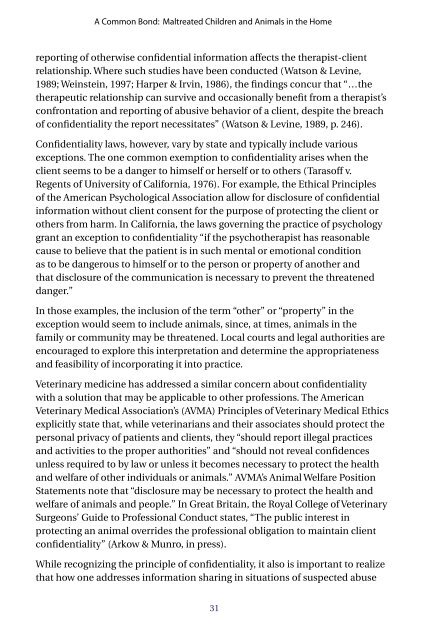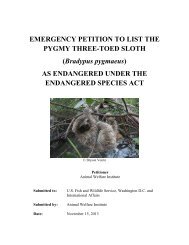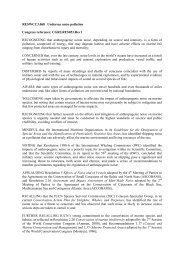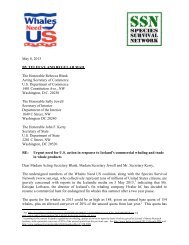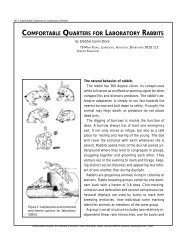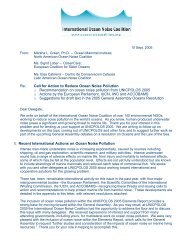A Common Bond - The National Link Coalition
A Common Bond - The National Link Coalition
A Common Bond - The National Link Coalition
- No tags were found...
You also want an ePaper? Increase the reach of your titles
YUMPU automatically turns print PDFs into web optimized ePapers that Google loves.
A <strong>Common</strong> <strong>Bond</strong>: Maltreated Children and Animals in the Homereporting of otherwise confidential information affects the therapist-clientrelationship. Where such studies have been conducted (Watson & Levine,1989; Weinstein, 1997; Harper & Irvin, 1986), the findings concur that “…thetherapeutic relationship can survive and occasionally benefit from a therapist’sconfrontation and reporting of abusive behavior of a client, despite the breachof confidentiality the report necessitates” (Watson & Levine, 1989, p. 246).Confidentiality laws, however, vary by state and typically include variousexceptions. <strong>The</strong> one common exemption to confidentiality arises when theclient seems to be a danger to himself or herself or to others (Tarasoff v.Regents of University of California, 1976). For example, the Ethical Principlesof the American Psychological Association allow for disclosure of confidentialinformation without client consent for the purpose of protecting the client orothers from harm. In California, the laws governing the practice of psychologygrant an exception to confidentiality “if the psychotherapist has reasonablecause to believe that the patient is in such mental or emotional conditionas to be dangerous to himself or to the person or property of another andthat disclosure of the communication is necessary to prevent the threateneddanger.”In those examples, the inclusion of the term “other” or “property” in theexception would seem to include animals, since, at times, animals in thefamily or community may be threatened. Local courts and legal authorities areencouraged to explore this interpretation and determine the appropriatenessand feasibility of incorporating it into practice.Veterinary medicine has addressed a similar concern about confidentialitywith a solution that may be applicable to other professions. <strong>The</strong> AmericanVeterinary Medical Association’s (AVMA) Principles of Veterinary Medical Ethicsexplicitly state that, while veterinarians and their associates should protect thepersonal privacy of patients and clients, they “should report illegal practicesand activities to the proper authorities” and “should not reveal confidencesunless required to by law or unless it becomes necessary to protect the healthand welfare of other individuals or animals.” AVMA’s Animal Welfare PositionStatements note that “disclosure may be necessary to protect the health andwelfare of animals and people.” In Great Britain, the Royal College of VeterinarySurgeons’ Guide to Professional Conduct states, “<strong>The</strong> public interest inprotecting an animal overrides the professional obligation to maintain clientconfidentiality” (Arkow & Munro, in press).While recognizing the principle of confidentiality, it also is important to realizethat how one addresses information sharing in situations of suspected abuse31


